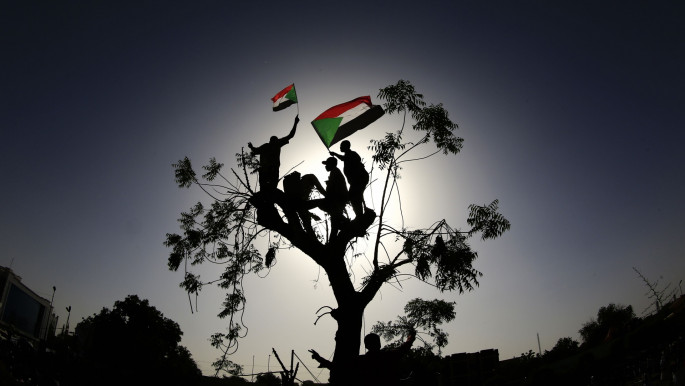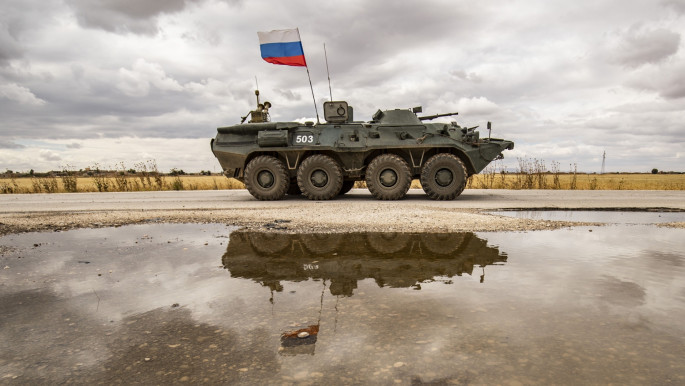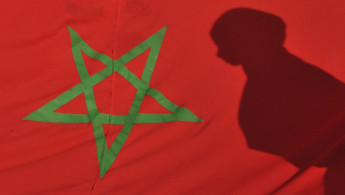How Morocco-Israel normalisation could push Algeria closer to Russia
Perhaps nothing illustrated this point more than Trump's announcement that Morocco would become the fourth Arab state in 2020 to formalise diplomatic relations with Israel as part of a deal in which the US would recognise Moroccan sovereignty over Western Sahara.
How Rabat's normalisation of ties with the Jewish state plays out in Morocco and how the US administration's stance on Western Sahara changes realities on the ground in this occupied territory remain to be seen.
Nonetheless, there is good reason to expect Washington's relationship with Algeria to significantly worsen due to Trump's apparent quid pro quo with the Moroccan monarchy. A major geopolitical implication will be a strengthening of Algeria's partnership with Russia.
Today, Arab states are under much regional and international pressure to abandon the Arab Peace Initiative (API), which essentially means "selling out" the Palestinians under the banner of pragmatism.
 |
Washington's relationship with Algeria could significantly worsen due to Trump's quid pro quo with the Moroccan monarchy |  |
The US, Israel, and the United Arab Emirates (UAE) are the three main countries pressuring Arab regimes to follow in Abu Dhabi's footsteps by formalising diplomatic relations with Israel. However, Algeria stands out as a North African powerhouse which firmly opposes this trend toward burying, rather than solving, the Palestinian issue.
Algeria's pro-Palestinian politics are evident not only among high-ranking officials in government, but also among average citizens. This is set to create greater friction between Algiers and Abu Dhabi as the UAE continues trying to push more Arab and African states toward accepting Israel without the Jewish State making any real concessions to the Palestinians.
 |
|
| Read more: How US blackmail pushed Sudan to normalise ties with Israel |
The permeation of Palestinian flags at protests in Algeria in May 2019 along with anti-Emirati sentiments voiced by the demonstrators were messages for the Crown Prince of Abu Dhabi Mohammed bin Zayed, whom Algerians saw as supporting the Trump administration's so-called 'Deal of the Century'.
Moreover, after the UAE and Israel announced the Abraham Accords, it was significant that Algerian President Abdelmadjid Tebboune distanced his country from the normalisation trend.
Tebboune declared the following: "There is a mad rush among [some] Arabs to normalise ties. We will not participate in it. We will not accept it. We will not bless it. The Palestine cause is sacred, and we will not give it up." Not even Syrian President Bashar al-Assad, who has long sought to portray himself as the champion of pan-Arab causes, slammed Abu Dhabi for making "peace" with Israel.
From a security standpoint, the Algerian leadership feels threatened by the Morocco-Israel deal. Given the extent to which the UAE was a driver behind this new normalisation agreement, Rabat's opening of full-fledged ties with Tel Aviv will contribute to Algeria's perception of the US, Morocco, and Gulf states working to destabilise Algeria.
 |
Algeria stands out as a North African powerhouse which firmly opposes the trend toward burying, rather than solving, the Palestinian issue |  |
If the UAE uses its leverage over Mauritania to push that Maghrebi country toward re-opening diplomatic relations with Israel, Algeria will feel even more uneasy with the effects of Emirati foreign policy in North Africa and the Sahel.
"Algeria has always been weary of the power of petrodollars following the collapse of Arab solidarity with Palestine in the late 1970s with the Camp David accords and the gradual taming of the Saudi regime by the security and economic interests of the neoliberalising North Atlantic," Jacob Mundy, an associate professor of peace and conflict studies and Middle Eastern and Islamic studies at Colgate University, told The New Arab.
Given the history of widespread terrorism in Algeria throughout the 1990s - a time when many experts predicted that Algeria would become a failed state - and the fact that many Algerians associate the Islamist/jihadist extremists of the "black decade" with Saudi-sponsored ideology, a widespread view among Algerians is that Saudi Arabia is a destabilising power. Additionally, with the UAE (and to a lesser extent Qatar) being so active today in Libya, Algeria is only becoming wearier of the "Gulf moment" in the Maghreb.
 |
|
| Read more: Don't look to Washington for peace in Israel-Palestine |
Enter Putin
Algeria's belief that Arab-Israel normalisation deals and US recognition of Moroccan sovereignty over the Western Sahara threaten Algerian security will probably result in Algiers moving closer to Russia, and possibly China too.
Moscow responded to Trump's Western Sahara proclamation by claiming that the US is in violation of international law, which will most likely deepen the Algerian-Russian partnership against the backdrop of mounting friction in Algiers-Washington relations.
 |
Aside from Netanyahu, one can legitimately argue that Putin is the leader who stands to gain the most from Trump's recklessly transactional foreign policy agenda in north-western Africa |  |
With President Vladimir Putin at the helm, Russian foreign policy is increasingly focused on growing Moscow's influence in areas of the Middle East and Africa where the Soviet Union had significant clout decades ago. In addition to Syria and southern Yemen, Algeria will probably be another area where we can expect the Russians to become increasingly involved.
This is merely one more example of the Kremlin capitalising on Trump's foreign policy in the Arab region. The Soviet Union's historic support for the left-wing Polisario Front is an important part of the equation as the Kremlin condemns Trump's stance on Western Sahara while appealing to the Algerian regime, which remains the only Arab government to actively back the pro-independence Sahrawi group.
 |
|
| Read more: Warm waters at last: Russia's expanding military footprint in the Middle East |
As Algeria's most important arms dealer, Russia is set to retain high levels of influence in Algeria which will likely only increase in 2021 thanks to Washington, Abu Dhabi, and Rabat's conduct.
So who wins from the Morocco-Israel deal and Trump's stance on Western Sahara? Many are quick to say Benjamin Netanyahu, and for good reason. The Israeli prime minister is certainly the main benefactor as he, unlike King Mohammed VI, can benefit greatly without having to accept any political risks at home.
Yet perhaps aside from Netanyahu, one can legitimately argue that Putin is the leader who stands to gain the most from Trump's recklessly transactional foreign policy agenda in north-western Africa.
Giorgio Cafiero is the CEO of Gulf State Analytics, a Washington, DC-based geopolitical risk consultancy.
Follow him on Twitter: @GiorgioCafiero



